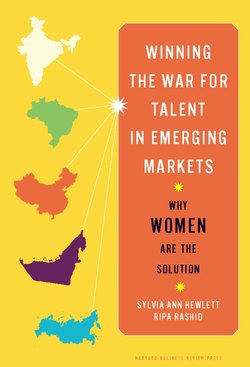Читать книгу Winning the War for Talent in Emerging Markets - Sylvia Ann Hewlett - Страница 21
На сайте Литреса книга снята с продажи.
DAILY DANGERS AND SAFETY CONCERNS
ОглавлениеThe first time Samara Braga was robbed, she was eight months pregnant and sitting in her car, parked in front of her office building in downtown São Paulo, Brazil. “A guy with a gun broke the window, shouting, ‘If you don't give me your watch, I'll kill you and your baby!’ It happened right in front of the bank building in broad daylight, with everyone watching.”
The second time, she was also in her car, on her way to work, and had stopped for a red light. A man bashed in the window and grabbed her bag. “You never expect this to happen at 11 o'clock on a rainy Monday morning.”
The third time, she was attacked as she walked out of the bank building at the end of the day. After she complained to the company president, a system of bodyguards for women was established. “Every one of us who had to leave the office after 7 p.m. had the right to a bodyguard to take you to the bus, train, or parking lot. The president was a clever guy. He knew the women were the ones working long hours because they were dedicated, so he said, ‘I have to make you feel comfortable. I'll give you all bodyguards.’ After that, I felt safe.”
The combination of workplace pushes covered so far—extreme jobs, bias and stereotyping, and travel limitations—are akin to those we have analyzed for women in the developed world, although they affect BRIC and UAE women in different forms and to a different degree. Our latest research, however, reveals a push factor entirely unique to emerging markets: personal safety.
Safety concerns in connection with work-related travel are a harsh reality that professional women in emerging markets grapple with daily. One-third or more of women feel unsafe while commuting to and from work, a number that rises to more than 50 percent in countries with vast economic disparities such as India and Brazil.
In India, where mass culture remains tradition bound and male dominated, the rising tide of independent-minded and financially self-sufficient women threatens deeply rooted social conventions, with unfortunately predictable repercussions: between 2003 and 2007, rape cases in India rose more than 30 percent, and kidnapping or abduction cases rose more than 50 percent.9 Most Indian professional women avoid public transportation and its gauntlet of verbal taunting, physical harassment, and other indignities. Many companies, especially IT firms, provide commuter vans to and from their campuses from train stations and other central points. Not surprisingly, telecommuting options, when offered, have a big uptake.
In Russia, hardest hit among the BRIC economies by the global financial downturn, crime is escalating, exacerbated by the fragility of a social safety net already shredded from the dissolution of the Soviet system. “Moscow is a very dangerous city,” says Karine Kocharyan. “There are a lot of people in need, and they're ready to do anything. That's part of the everyday environment in such megacities.”
São Paulo and Rio de Janeiro, similarly, are notorious for the high incidence of crime, and almost every Brazilian woman in our study has had firsthand experience with these daily dangers. One focus group participant had her cell phone stolen at gunpoint when she stopped her car at a traffic light; another, while traveling in a car with a friend from a wealthy family who was a kidnapping target, was followed and fired at on a major highway. White-collar professionals need to exercise constant vigilance, one woman explained, noting that if you wear a nice watch, use a BlackBerry or cell phone, or carry a laptop, “you're making yourself a target.” Another matter-of-factly described the difference between crime in a small city versus a metropolis. “In a small city, they break your window and steal your radio. In São Paulo, they put a gun to your head and say, ‘Let's go to the ATM.’”
These safety concerns strongly influence preferences about where to work, what position to take, and what type of career to pursue. And because women are mothers and caregivers, as well as vulnerable to a broader range of crimes, safety considerations factor in their work-life decisions to a far greater degree than do men. “I could make more money and have a more comfortable life in São Paulo,” said Carolina, a Brazilian national and midlevel manager at a global financial services company, now based in corporate headquarters in the United States. “I would have a comfortable life and have great professional opportunities, but, frankly, the violence is too much.”
